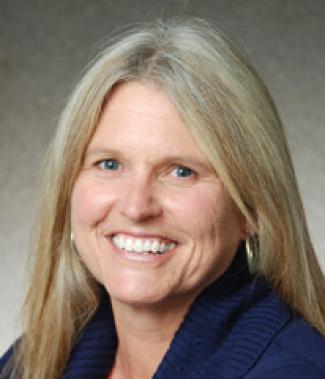Laura Argys is a Professor of Economics and the Associate Dean for Research and Creative Activities in the College of Liberal Arts and Sciences at UC Denver.
Trained as a labor economist, Laura conducts research examining the impact of family, social and education policies on child well-being. Her recent research projects range from an examination of the impact of child support policies on poverty and child well-being to the effect of foster care policies on the experience of children in the foster care system to the influence of peers on the risky behaviors of adolescents.
In addition to teaching large sections of introductory economics, Laura teaches graduate classes training students in the application of econometric methods to research questions and graduate seminars in labor economics and economic demography.
Selected Publications
Rees, D.I., L.M. Argys, and S.L. Averett. 2001. “New Evidence on the Relationship Between Substance Use and Adolescent Sexual Behavior,” Journal of Health Economics 20: 835-845.
Argys, L. M. and H.E. Peters, 2001. “Interactions between Unmarried Fathers and Their Children: The Role of Paternity Establishment and Child Support Policies.” American Economic Review 91(2): 125-129.
Argys, L.M., H.E. Peters and D.M. Waldman. 2001. “Can the Family Support Act Put Some Life Back into Deadbeat Dads? An Analysis of Child Support Guidelines, Award Rates and Levels.” Journal of Human Resources 36(2): 226-252.
Averett, S.L., D.I. Rees, and L.M. Argys, 2002. “The Impact of Government Policies and Neighborhood Characteristics on Teenage Sexual Activity and Contraceptive Use,” The American Journal of Public Health. November, 2002: 1773-78.
Argys, L.M. and H.E. Peters, “Can Adequate Child Support Be Legislated? A Model of Responses to Child Support Guidelines and Enforcement Efforts,” 2003. Economic Inquiry,41(3): 463-479.
Averett, S.L., D.I. Rees, B.J. Duncan and L.M. Argys. 2004. “Race, Ethnicity, and Gender Differences in the Relationship between Substance Use and Adolescent Sexual Behavior.” Topics in Economic Analysis and Policy, 4(1).
Bishai D., Astone N.M., Argys L.M., Filidoro C., Gutendorf R. 2006. "A National Sample of U.S. Paternity Tests: Do Demographics Predict Test Outcomes?" Transfusion, 46(5): 849-53.
Argys, L.M., D.I. Rees, S.L. Averett and B. Witoonchart. 2006. “Birth Order and Risky Adolescent Behavior.” Economic Inquiry. 44(2): 215-33.
Argys, L.M., B.J. Duncan, Economic Incentive and Placement for Children in Foster Care.” 2007. Southern Economic Journal, 74(1): 114-142.
Argys, L.M. and D.I. Rees. 2008. “Searching for Peer Group Effects: A Test of the Contagion Hypothesis.” Review of Economics and Statistics. 90(3): 442-458.

